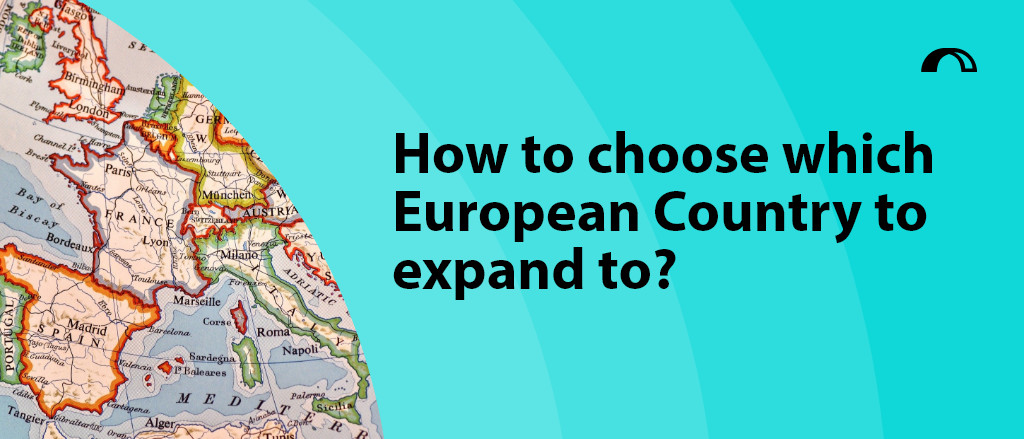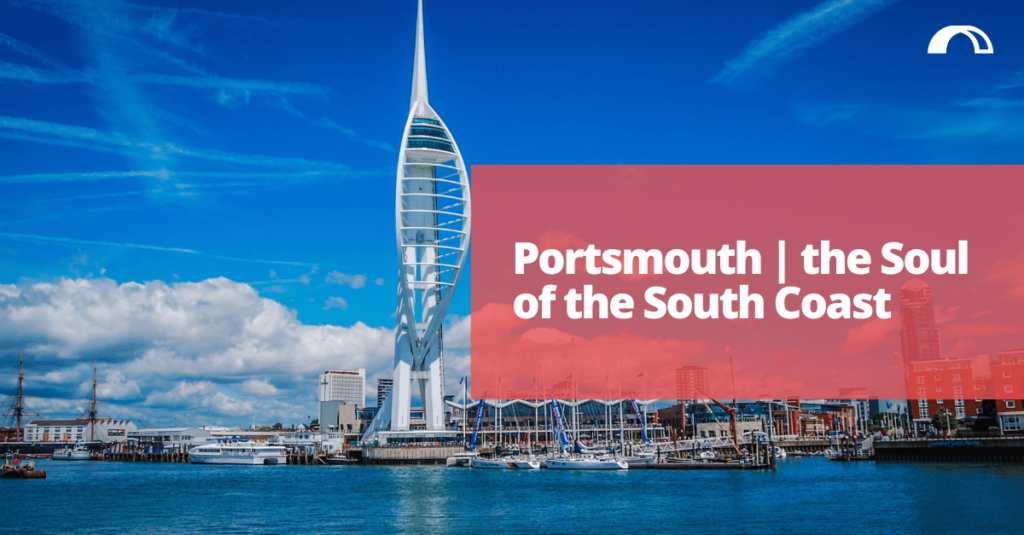With over 44 countries in Europe, how do you know which one is right for your business? In this article we explore how to choose which which European Country to expand to, and summarise top 5 countries from the Doing Business 2020 report compiled by the World Bank Group.
About Europe
- 747 million total European population 1
- 15.79% of global GDP is in EU 2
- $797.3 billion Annual trade in goods and services between US & Europe 3
Europe, boasting 44 countries, is a popular destination for businesses setting their sights on international expansion. Europe prides itself on having a strong and secure environment, provides access to a wide talent pool, and relatively low barriers to entry. English-speaking countries such as the UK and Ireland, along with Scandinavia and the Netherlands often appeal to other English-speaking businesses. The European single market is also a big attraction; once you have established a business in an EU country, you will gain straightforward access to the combined market of all 27 member states.
So how do you choose which European Country to expand your business to?
How do you make sure you make the right decision? At Bridgehead, we have been helping businesses expand into Europe for almost two decades. Some clients approach us and know which country they want to enter. At that point, we would develop a tailored go-to-market (GTM) strategy and find the optimum channels to penetrate the market, enabling you to achieve a rapid ROI.
Other clients have a couple of countries on their shortlist and ask us to select the best one. We would conduct extensive market research and develop a GTM strategy to identify which market is the most suitable to create a successful bridgehead into that region.
Ultimately, there will be many factors which will influence your decision on which European Country to expand to, and above all, a go-to-market strategy is essential to make the right decision (read our blog here for more info on why you need a go-to-market strategy and its five critical elements).
However, research on specific European countries is a useful starting point, and the Doing Business 2020 report4 compiled by the World Bank Group can be a helpful resource. The report assesses several factors, then rates the countries by the overall ease of doing business there. Here, we summarise the top 5 European countries ranked by the report.
Top 5 European countries to do business in
Factors measured by the Doing Business Report 2020
Read about each of the top 5 countries to do business in, to help you choose which European Country to expand your business to:
Denmark | United Kingdom | Norway | Sweden | Lithuania
Denmark
The country itself is largely surrounded by coastline, which is ideal for international supply chains. Owing to its exceptional welfare policies and income distribution, the Danish population enjoys a high standard of living. Much of Denmark’s growth is attributed to foreign trade, therefore the Danish Government actively supports trade liberalisation.
It can take only 3.5 days to start a business in Denmark. In addition, Denmark’s GDP is forecast to increase by 1.6% p.a. between 2019 to 20245. The Danish economy is in a strong position to withstand the effects of the Covid-19 pandemic. That’s due to high export rates in pharmaceuticals, agricultural produce, chemicals and renewable energy. All those sectors are somewhat resistant to a global slump in demand.
In 2018, the services sector accounted for 64.6% of GDP. By 2024, it is projected that over 80% of the workforce will be in the services sector. 31.4.% of Denmark’s population has achieved a post-secondary education level.
Denmark is ranked a respectable 10th place out of 141 countries for competitiveness. To give you another reason to choose Denmark, they had the second lowest risk score out of 149 countries.
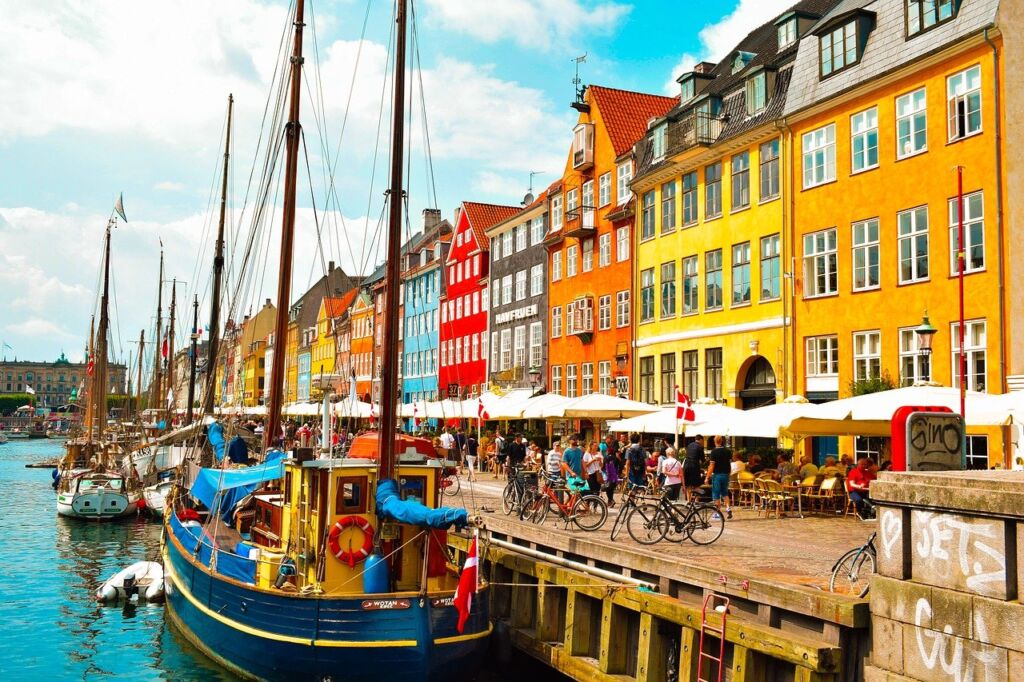
United Kingdom
The UK remains one of the world’s largest economies. It has strong links with Australia, the US and Canada who all share cultural similarities. The corporate tax rate is comparatively low at 19%. The UK also benefits from world leading universities as well as access to a top talent pool. Above all, there is a strong entrepreneurial start-up spirit and well-developed infrastructure. With flexible employment laws and low-cost legal structures as well as capital gains tax relief, the UK is an attractive destination to start-up your international expansion. In addition, it takes only 4.5 days to start a business in the UK. The GDP forecast is a rise of 1.5% p.a. during 2019 to 20246.
The uncertainty of Brexit and the COVID-19 pandemic has slowed economic growth, however, there were sectors which benefited from revenue increases such as e-commerce, healthcare and food and drink.
British economic growth is attributed to the services sector, amounting to a massive 71% of GDP in 2018. By 2024, it is anticipated that over 82% of the UK’s workforce will work in the services sector. 35.2% of the population has gained post-secondary educational qualification.
The UK ranks an enviable 9th place for competitiveness out of 141 countries. Operational risk is relatively low with the UK having the 9th lowest risk in the world out of 149 countries.

Norway
Norwegians enjoy high living standards, and this Nordic country benefits from a well-developed infrastructure. The country has vast natural resources, underpinning its strong economic performance. In addition, Norway has one of the highest GDPs per capita. It takes only 4 days to start a business and the country has one of the simplest procedures for setting-up a business. The GDP forecasts an increase of 2% between 2019-20247.
Be mindful that Norway is not a member of the European Union (EU), however, it is a member of the European Economic Area (EEA) therefore Norway shares the same trading code practice as the EU.
The impact of covid-19 on Norway has been moderate compared to other European countries. Norway’s recovery will be aided by their sizable sovereign wealth fund.
In 2018, the service sector accounts for 55% of the GDP. It is predicted that by 2024, almost 80% of the working population will be in the services sector. You also have access to a well-educated talent pool with 37% of Norwegians obtaining a post-secondary qualification.
This northern European country can certainly hold its own, ranking 17th place for competitiveness out of 141 countries and having the 10th lowest operational risks in the world.
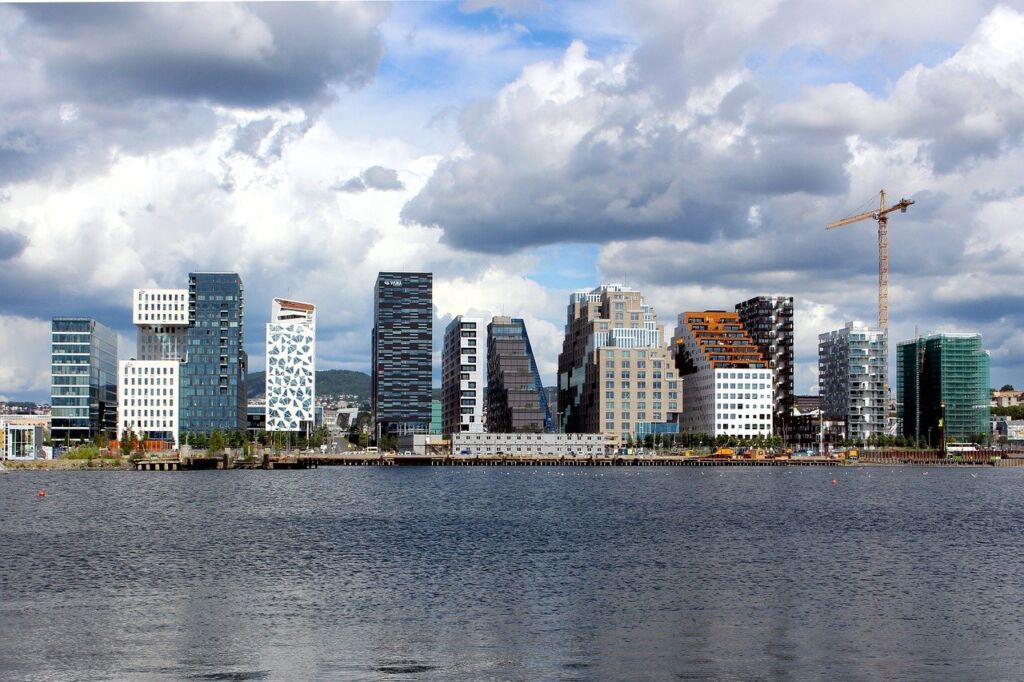
Sweden
Neighbouring Norway and Finland is Sweden, renowned for its natural beauty. Sweden was years ahead of other countries for its forward-thinking environmental accomplishments. In recent years, Stockholm has been a popular destination for tech start-up hubs. It is home to half a dozen major start-up hubs and venture capital firms. It takes 7.5 days to set up a business in Sweden with a GDP growth of 1.9% between 2019 and 20248.
Globally, Sweden has fared well from the covid-19 pandemic. Despite the Swedish’s Government’s lenient stance on lockdown compared to other nations, businesses and consumers opted to close voluntarily and people chose to stay at home. The Government introduced loans and guarantees to support companies in need.
In 2018, the services sector accounted for over 64% of the country’s GDP. By 2024, 81.4 % of the workforce will be working in the services sector.
Sweden is home to some leading universities where you can draw on top talent. 36.7% of the Swedish population have accomplished post-secondary education level.
For business, Sweden is on the world-class playing field, achieving 8th place for competitiveness out of 141 countries and it is the 4th lowest country in terms of operational risk.
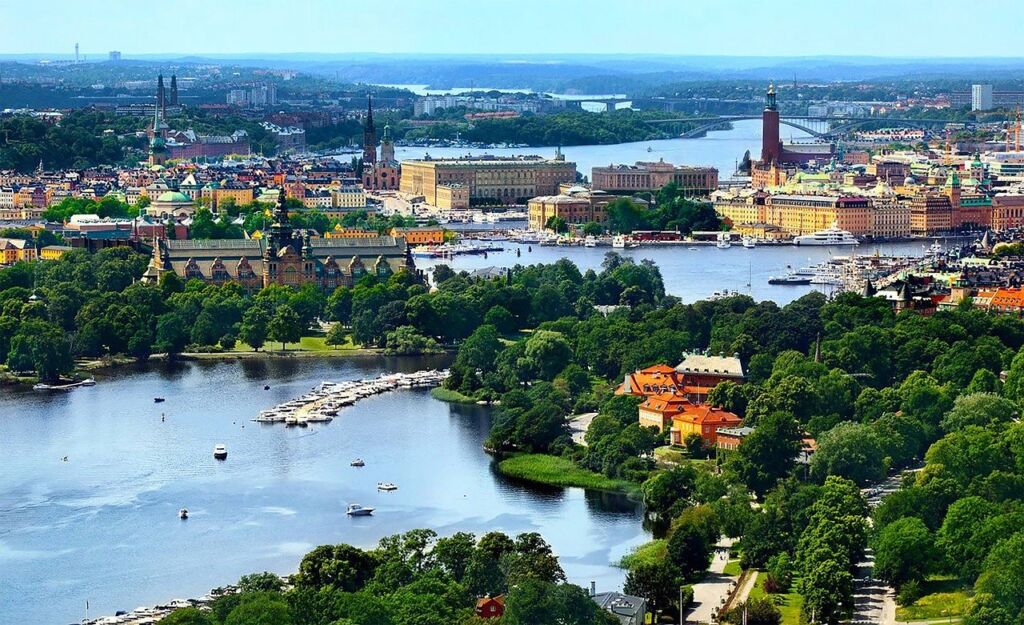
Lithuania
The most recent Doing Business report placed Lithuania into 11th place overall (5th place for European countries) which is the highest position the country has achieved since the inception of the report. The rise and rise of Lithuania can be attributed to significant progress in the “getting electricity” rating. There are now less hoops to jump through to get connected. Lithuania has remained stable in the categories “tax payments” and “trading across borders”. It is easy to register a property and the country ranks highly for enforcing contracts and construction permits. All in all, Lithuania ticks the necessary boxes.
Since Lithuania joined the EU in 2004, the EU assistance and development funds have helped to modernise the country’s economy. It takes 5.5 days to start a business in Lithuania and GDP growth is forecasted at 2.3.% from 2019 to 20249. Although the Covid-19 pandemic has been unkind to Lithuania’s economy, the Lithuanian Government has pledged a recovery package of $5.5 billion US dollars to counteract the impact.
Lithuania appeals to English speaking businesses, as English is commonly used as a business language. The country enjoys a politically stable economy. There is funding and support available to business start-ups. The country benefits from having a strong transport infrastructure, as well as a world-leading ICT infrastructure.
The services sector accounted for 61% of Lithuania’s GDP in 2018. By 2024, 68.2% of the workforce will represent the services sector. Lithuania can boast a multilingual and educated population with 53% attaining a post-secondary educational qualification. Competitively, Lithuania is ranked 39th in the world and positioned 26th for lowest operational risks.

Which European Country will you choose to expand your business to?
When it comes to choosing a country for international expansion, research is pivotal to understanding how the market works; and developing a GTM strategy is key to a successful international expansion. We’ve helped many businesses to set-up and thrive in Europe. The country you choose will be dependent on several factors, such as your product/service offering, your objectives, market demand, costs and timeframe. We use disruptive and tested proprietary models to enter your chosen market as quickly as possible, establishing a clear presence for your business and generating instant income streams. We are results-driven and have both the strategic and tactical know-how to grow sales in each European or North American country. Let us help you to turn your international expansion vision into a reality. Call our experts today to start your journey.
Insights on international expansion
Now that you know how to choose which European Country to expand to, join our Discovery Lite portal for free to get access to a monthly insights magazine and bonus downloadable materials to help your business reach new markets:
Let’s connect
References:
1. Population of selected European countries in 2020, Statista
2. European Union: share in global gross domestic product based on purchasing-power-parity from 2014 to 2024, Statista
3. Department for International Trade
4. Doing Business 2020 report
5. Denmark Statista Country Report – September 2020
6. United Kingdom Statista Country Report – September 2020
7. Norway Statista Country Report – September 2020
8. Sweden Statista Country Report – September 2020
9. Lithuania Statista Country Report – September 2020
